Torrance Workplace Nerve Tendon and Muscle Injury Attorney
The soft tissues of the body, such as the muscles, tendons, and ligaments, are often taken for granted until they are injured. Soft tissue injuries often heal very well with appropriate treatment, rest, and time, but others are more serious and may demand surgical correction. Damage to the soft tissues of the body can also harm nearby nerve cells, and nerve damage of any kind can be incredibly debilitating.
Experienced Legal Counsel for Torrance Workplace Nerve, Tendon, and Muscle Injury Claims
If you or a family member has suffered a workplace injury resulting in damage to the nerves, muscles, tendons, or any other soft tissues of the body, the Pratt Law Corporation can help you assess your best possible recovery options. We have helped many injured clients in the Torrance area with a wide range of workers’ compensation claims and personal injury claims to help them secure the compensation they need to recover from these injuries.

Common Types of Soft Tissue Injuries and Nerve Damage
Any workplace can be hazardous, but some are inherently more dangerous than others. It’s vital for every worker to acknowledge the risks they face at work each day and uphold their individual responsibilities to follow workplace safety rules. Workplace injuries can happen in many ways, and soft tissue and nerve injuries are some of the most commonly reported work-related injuries in the United States each year. A Torrance workplace nerve, tendon, and muscle injury attorney is the ideal asset to have on your side when it comes to filing your claim for workers’ compensation benefits.
Your attorney can help you prove that your injury qualifies for coverage under the terms of your employer’s workers’ compensation insurance policy. Some of the most common types of nerve, tendon, and muscle injuries reported in Torrance workplaces include:
- Repetitive stress injuries. Many people must perform the same manual tasks each day at work. When a worker uses certain parts of their body more than others, they eventually begin experiencing the effects of the wear-and-tear these parts have endured. For example, carpal tunnel syndrome is one of the country’s most commonly reported work-related medical conditions. This condition can be the result of typing every day at work or using your hands for very fine but repetitive tasks.
- Strains and sprains. Individuals who must perform manual labor must use caution when lifting and carrying heavy objects. Muscle strains and sprains can happen unexpectedly if a worker pushes themselves too far. Any type of strain or sprain may heal with time and appropriate treatment, but severe sprains and strains can cause a host of other long-term symptoms and medical complications.
- Blunt force trauma, which can not only damage or even rupture soft tissues but also affect the nerves in the damaged area as well. These injuries may also entail bone fractures and severe contusions and impose a host of difficult symptoms on the victim.
- Tendonitis. The body’s tendons are vital for proper range of motion and flexibility, allowing joints to move correctly. Unfortunately, tendonitis can develop as a form of repetitive stress. Some examples of this condition are easily manageable with appropriate treatment, but extreme tendonitis could require surgical correction and ongoing rehabilitation.
- Nerve damage. This can result as a component of many types of soft tissue damage. Unfortunately, nerve damage is more likely to cause extensive adverse symptoms, and it is more difficult to treat effectively. Severe nerve damage could entail chronic pain, diminished range of motion, reduced coordination and flexibility, and psychological stress from managing these symptoms.
As long as the nerve, tendon, or muscle injury you recently suffered at work happened while you were performing work-related duties, you are likely covered by your employer’s workers’ compensation insurance. The workers’ compensation claim process might seem simple at first, but unfortunately, many people experience a host of difficulties with their claims and carry misconceptions about how to file their claims and what benefits could be available to them.
How Does Workers’ Compensation Function?
California law requires every employer in the state to have workers’ compensation insurance coverage, even if they only have one employee. Like any other type of insurance policy, the employer will pay a monthly premium to maintain their coverage. However, a policyholder’s premium rate largely hinges on the overall risk level they present to the insurance company. Therefore, an employer perceived to operate a more dangerous workplace is more likely to have employees file claims for workplace injuries. For example, an employer who operates an office building will likely have a lower workers’ compensation premium than the owner of a construction company.
An employer’s workers’ compensation insurance premium is an important overhead expense, and it is possible for this expense to increase substantially in response to multiple claims for benefits within a relatively short time. Unfortunately, this causes some employers to interfere with injured workers’ claims, from trying to convince them not to file their claims to more direct retaliation, such as firing them.
Workers’ compensation insurance functions like any other type of insurance, but the injured worker faces the added complication of their employer’s involvement with their claim. When employers come between their injured workers and the benefits those workers need to recover as fully as possible from their injuries, legal representation is essential for any worker who wants to navigate this difficult situation to the best possible conclusion.
Benefits Available Through Workers’ Compensation
When you have a trustworthy Torrance workplace nerve, tendon, and muscle injury attorney representing you in your recovery efforts after a workplace injury, you can approach the difficult recovery efforts ahead of you with more confidence and peace of mind. Your attorney can help you file your claim as efficiently as possible with all the supporting evidence required to substantiate the claim as strongly as possible. If the insurance company denies your claim, offers an unacceptably low settlement offer, or engages in any bad faith tactics, your legal team will know how to address these variables on your behalf.
An injured worker in Torrance can usually expect two types of benefits if their workers’ compensation claim is approved. First, the insurance company should cover all their medical expenses resulting from the injury, including long-term expenses for managing symptoms and restoring lost functionality until they reach maximum medical recovery. If the claimant cannot work because of their injury, they can receive ongoing disability benefits to account for their lost income.
When an injured worker qualifies for “total disability” benefits, this typically indicates they will be completely unable to work at all until they recover. Therefore, the maximum weekly benefits they may receive is about two-thirds of the average weekly wage they earned prior to their injury. If a claimant can work but faces diminished earning capacity due to their injury, they may qualify for partial disability benefits instead. This type of ongoing benefits arrangement accounts for the difference in income experienced by the claimant due to their injuries.
Partial disability benefits are relatively flexible and can adjust over time. However, the claimant does face increased responsibilities if they want to maintain these benefits for as long as possible. The amount received in partial disability benefits is meant to reflect the difference in earning capacity experienced by the claimant in response to their workplace injury. The claimant must provide the insurance carrier with regular earnings reports and medical updates. As the claimant’s condition improves and they are able to work and earn more income, their partial disability benefits will likely decrease over time to reflect this and cease once they regain their lost earning power.
Total permanent disability benefits may be most suited to claimants who have developed disabilities from their injuries. Most soft tissue damage, such as injury to the nerves, tendons, muscles, or ligaments, will present a wide range of symptoms, from a diminished range of motion and chronic pain to neurological complications from nerve damage and the psychological impact of sustaining a life-changing injury. Whenever a claimant has suffered any measure of permanent harm from their workplace injury, they could be eligible to claim substantial long-term compensation, but most workers’ compensation insurance carriers try to avoid liability for extensive long-term damages with lump-sum “clincher” offers.
What to Expect From a Torrance Workplace Nerve, Tendon, and Muscle Injury Lawyer
Dealing with any insurance company is rarely going to be easy or pleasant, and this can be especially true for workers’ compensation claims in Torrance. Any soft tissue injury can not only cause a host of adverse complications but also interfere with their everyday life in various ways. The victim is likely not only experiencing a great deal of pain and suffering from their injury but also the stress of facing an uncertain medical future and the inability to work while they recover. If you want the best chance of securing the greatest amount of benefits possible from your workers’ compensation claim, it is best to have an experienced and reliable Torrance workplace nerve, tendon, and muscle injury attorney handling your recovery efforts.
When you choose the Pratt Law Corporation to assist you with your claim for workers’ compensation benefits after any form of soft tissue injury at work, we will set to work immediately, helping you gather whatever evidence you may require to prove how your injury happened. While your employer’s insurance coverage will likely protect them from civil liability, they could negate this legal protection if they do not have appropriate coverage, interfere with your claim in any way, or fail to facilitate the claim process as required by law.
It is possible for a third party to be liable for a workplace nerve, tendon, or muscle injury, in which case the injured victim not only has the right to pursue workers’ compensation benefits but also to file a civil claim for damages against the at-fault party. A successful personal injury claim in this situation can potentially provide compensation for any damages not covered by their employer’s workers’ compensation. However, you have the best chance of success when you have legal representation you can trust.
Filing a Third-Party Personal Injury Claim
When you know a specific party is responsible for the workplace nerve, tendon, or muscle injury you recently experienced, and they fall outside the influence of your employer, this constitutes grounds for a third-party personal injury claim. While workers’ compensation can be invaluable for providing initial compensation for the immediate losses resulting from a workplace injury, your claim may not fully cover all of the damage you suffered.
If you are able to file a third-party personal injury claim in response to your injury, a Torrance workplace nerve, tendon, and muscle injury attorney is the best asset to have on your side for maximizing the total compensation you receive. Once you exhaust your recovery options through workers’ compensation, you may only secure medical expense coverage and disability benefits, but those benefits will only amount to a percentage of your lost income. However, with a third-party injury claim, you can claim compensation for all outstanding lost wages, lost future earning capacity, property damage, and pain and suffering.
An experienced Torrance workplace nerve, tendon, and muscle injury attorney is the ideal resource if you are unsure what the best path to recovery would be for you after your injury. Any soft tissue or nerve damage can potentially present a wide range of negative and disruptive symptoms to the victim, and their situation can make life harder on their household in various ways. When a specific party is responsible for a workplace nerve, tendon, or muscle injury, you have the right to seek accountability with a civil action. When you choose the Pratt Law Corporation to represent you, we’ll seek to maximize your workers’ compensation benefits before helping you build a personal injury claim seeking compensation for the rest of your losses that insurance can’t cover.
Proving Your Damages in a Personal Injury Case
Soft tissue injuries and nerve damage may be some of the most reported workplace injuries in the United States, but one of the common challenges facing victims of these injuries is proving the full scope of the severity of their symptoms and the long-term medical conditions their injuries cause. To succeed with a civil claim for damages in Torrance, you must identify the party responsible for causing your damages and then show the full extent of the losses their actions caused. You must then prove that your claimed damages are the direct result of the defendant’s actions and not some other cause.
A successful workers’ compensation claim will only cover a portion of the total losses you are likely to experience from a workplace nerve, tendon, or muscle injury. When you are only able to file a workers’ compensation claim and do not have grounds for a subsequent civil action, legal counsel you can trust will be essential for maximizing your determination of benefits. If you do have the ability to file a personal injury case, you must be prepared to show the full range of damages the defendant caused you to suffer.
Economic losses beyond what workers’ compensation covers are generally easy to prove with the right documentation. Your attorney will help you calculate your lost income not covered by insurance and evaluate the severity of the pain and suffering you experienced. In California, there is no limit to the amount of pain and suffering compensation an injured worker can claim in response to a personal injury. Your attorney could seek a large lump sum if you suffered a permanent disability, but if you are expected to make a full recovery relatively soon, they may seek an ongoing benefits arrangement instead that awards compensation on a regular basis until you are fully healed.
Understanding Fault in Workplace Injury Claims
The workers’ compensation system in California exists to protect workers who are injured while performing their job duties, even if they cause those injuries themselves. Therefore, as long as you were performing your job duties in good faith and were not violating any workplace safety rules, you likely have grounds to file a workplace injury claim, and proving fault is not necessary as long as you can prove you did not cause it yourself through intentional misconduct or egregious negligence. Proving fault is, however, essential to a personal injury claim.
To succeed with any type of civil suit for damages in California, you must prove how your damages happened and who caused them. Depending on the nature of your workplace nerve, tendon, or muscle injury, this may require physical evidence from the scene of the accident, testimony from coworkers or other witnesses who saw the accident happen, and various other forms of evidence like security camera footage from your workplace.
Ultimately, anyone who suffers a workplace nerve, tendon, or muscle injury is likely to face a host of difficult legal issues in response to this experience. In addition, they may be unaware of all the recovery options available to them or unable to navigate them unassisted due to the extent of their injuries. Whatever your unique case entails, the team at the Pratt Law Corporation is ready to provide the compassionate legal counsel you will need throughout your recovery efforts. Contact our team today and schedule a consultation with a Torrance nerve, tendon, and muscle injury attorney, and we will let you know how we can empower your recovery.




